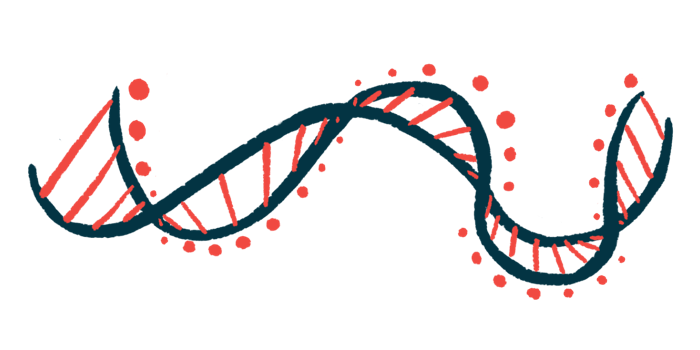Genetic modifiers may influence CF disease course: Review
Mutations affect symptom severity, treatment response
Written by |

There could be many genes beyond CFTR that influence cystic fibrosis (CF) severity and treatment responses, according to a review study.
Across 70 different studies, dozens of these so-called genetic modifiers were found to affect the severity of various CF symptoms. Mutations in a few of them were linked to how well patients responded to treatment.
The scientists said continued research into the role of these genes in CF could help identify disease biomarkers and therapeutic targets that can ultimately “improve the treatment options and provide better-quality personalized care for the people living with CF.”
The study, “Impact of Gene Modifiers on Cystic Fibrosis Phenotypic Profiles: A Systematic Review,” was published in Human Mutation.
CF is caused by mutations in the CFTR gene, leading to production of an absent, deficient, or dysfunctional CFTR protein. When CFTR, which is involved in moving salt and water in and out of cells, isn’t working properly, it leads to the accumulation in the body of thick and sticky mucus that disrupts organ function.
Mutations influence disease course
Many different mutations have been identified in the CFTR gene, each of which can have a different effect on CFTR protein levels or function. The specific mutations a CF patient has can significantly influence that person’s disease severity and symptoms.
Patients who have the same CFTR mutations can sometimes have very different disease courses. Accumulating evidence suggests that there could be mutations in additional genes other than CFTR, called genetic modifiers, that don’t specifically cause CF, but which can influence its course.
Many such genes have been identified across previously published studies, but their definitive roles in CF remain largely unestablished. In the recent report, the scientists conducted a systematic review of these previous studies to get a full picture of what’s currently known about CF genetic modifiers.
Their analysis covered 70 articles that cumulatively identified 81 different modifier genes. Most of the genes were only looked at in a single study, but some had been repeatedly identified, including MBL (five studies), SLC26A9 and SLC9A3 (seven studies each), (seven studies), SLC6A14 (eight studies), and TNF-alpha (nine studies).
The most commonly explored genetic modifier was TNF-alpha, which encodes production of an inflammatory signaling molecule of the same name that’s found to be elevated in CF patients’ blood.
Across the evaluated studies, mutations in the gene were linked to various CF symptoms, including decreased lung function, early infection with Pseudomonas aeruginosa bacteria, gastrointestinal symptoms, reduced bone density, and increased rates of liver disease.
Another family of genes that appeared to be repeatedly identified as possible genetic modifiers in CF was the solute carrier family (SLC). These genes encode production of transporter proteins that reside on cell surfaces and mediate the movement of molecules in and out of them.
SLC proteins are known to interact with CFTR and genetic variation in the genes that encode them have been linked to altered CFTR activity.
Mutations in SLC genes were linked to both positive and negative effects on CF symptoms such as lung disease, P. aeruginosa infection, gastrointestinal problems, bone changes, and nutritional issues.
Genetic modifiers could also influence the effectiveness of certain therapies. In the age of personalized medicine, there’s been a push for theratyping, or identifying treatments likely to be effective for a person based on their genetic makeup.
A few studies identified genes that could affect treatment responses, including a possible role for ADRB2, IL-8, and SLC6A14 in modulating responses to bronchodilators, a class of inhaled therapies that work to make breathing easier.
Mutations in two SLC genes, SLC6A14 and SLC26A9, were associated with increased effectiveness of the CFTR modulator therapy Orkambi (ivacaftor/lumacaftor).
“This review highlights the need for increased research in the area of theratyping,” the researchers wrote. “Due to the vast number of genes and subsequent protein–protein interactions impacting drug metabolism and transport, genetic variations and their significance cannot be underestimated.”
Given that most studies focused on individual mutations or genes, there’s still a need for more comprehensive analyses to identify the genetic modifiers, either alone or in combination, that have the greatest clinical influence in CF, the researchers said. “Further studies are needed to replicate and validate the previous studies that were described in the [systematic review] and potentially identify and analyze new modifier genes,” they wrote.







